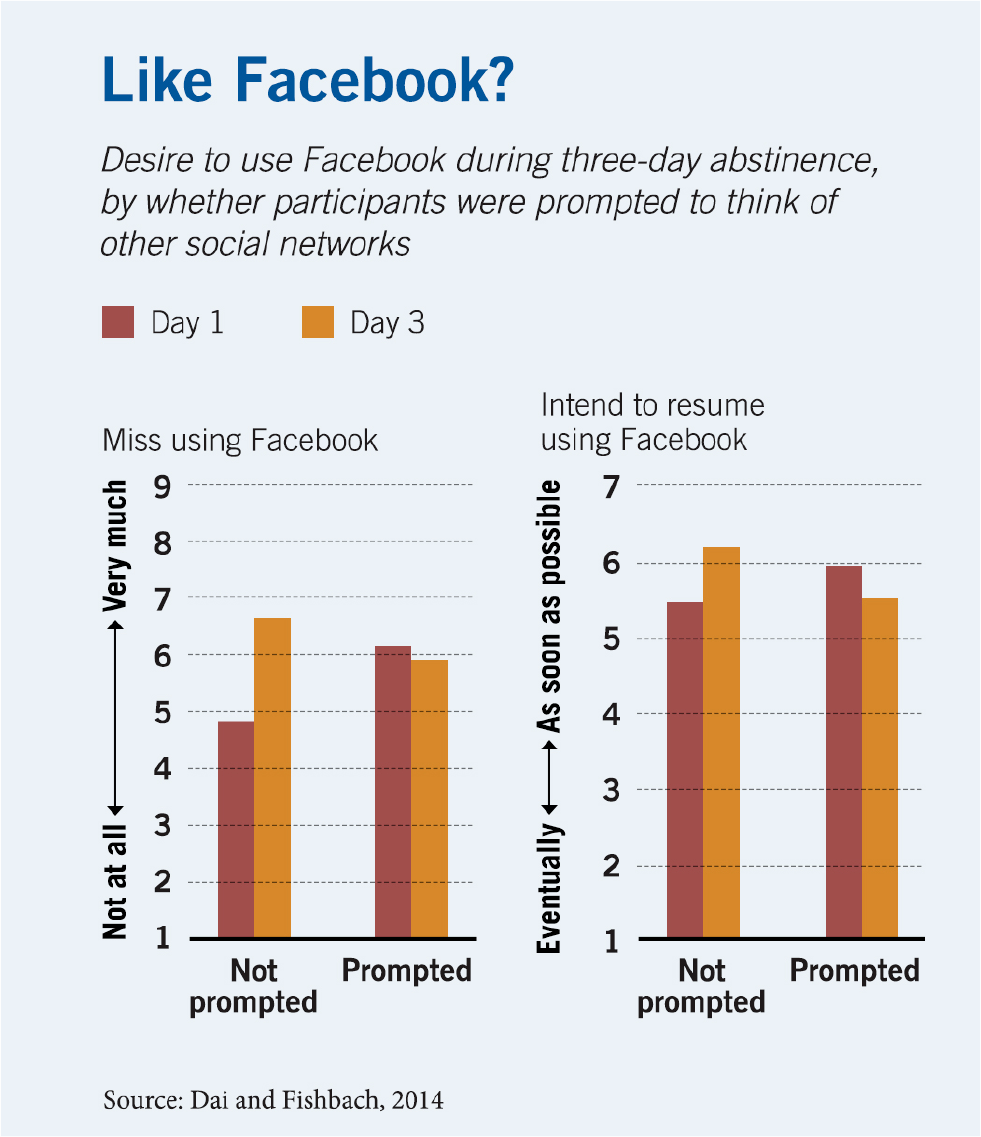
Why Banning Menthol Cigarettes Locally Doesn’t Work
People kept smoking after a statewide restriction, and tax revenue fell dramatically.
Why Banning Menthol Cigarettes Locally Doesn’t WorkWhy ads that stoke consumer cravings can backfire
Reminding people of something they haven’t had in a long time could make them want it more, but only if there aren’t any good substitutes.

Marketers should denigrate the value of alternatives.
Xianchi Dai and Ayelet Fishbach, “How Nonconsumption Shapes Desire,” Journal of Consumer Research, December 2014. Chart reprinted with permission from The University of Chicago Press. Copyright 2014.

People kept smoking after a statewide restriction, and tax revenue fell dramatically.
Why Banning Menthol Cigarettes Locally Doesn’t Work
Social media has changed the calculus of exit versus voice.
Chick-fil-A and the Rise of Activist Capitalism
Reexamining the conventional wisdom on food deserts.
Higher Income, Healthier GroceriesYour Privacy
We want to demonstrate our commitment to your privacy. Please review Chicago Booth's privacy notice, which provides information explaining how and why we collect particular information when you visit our website.